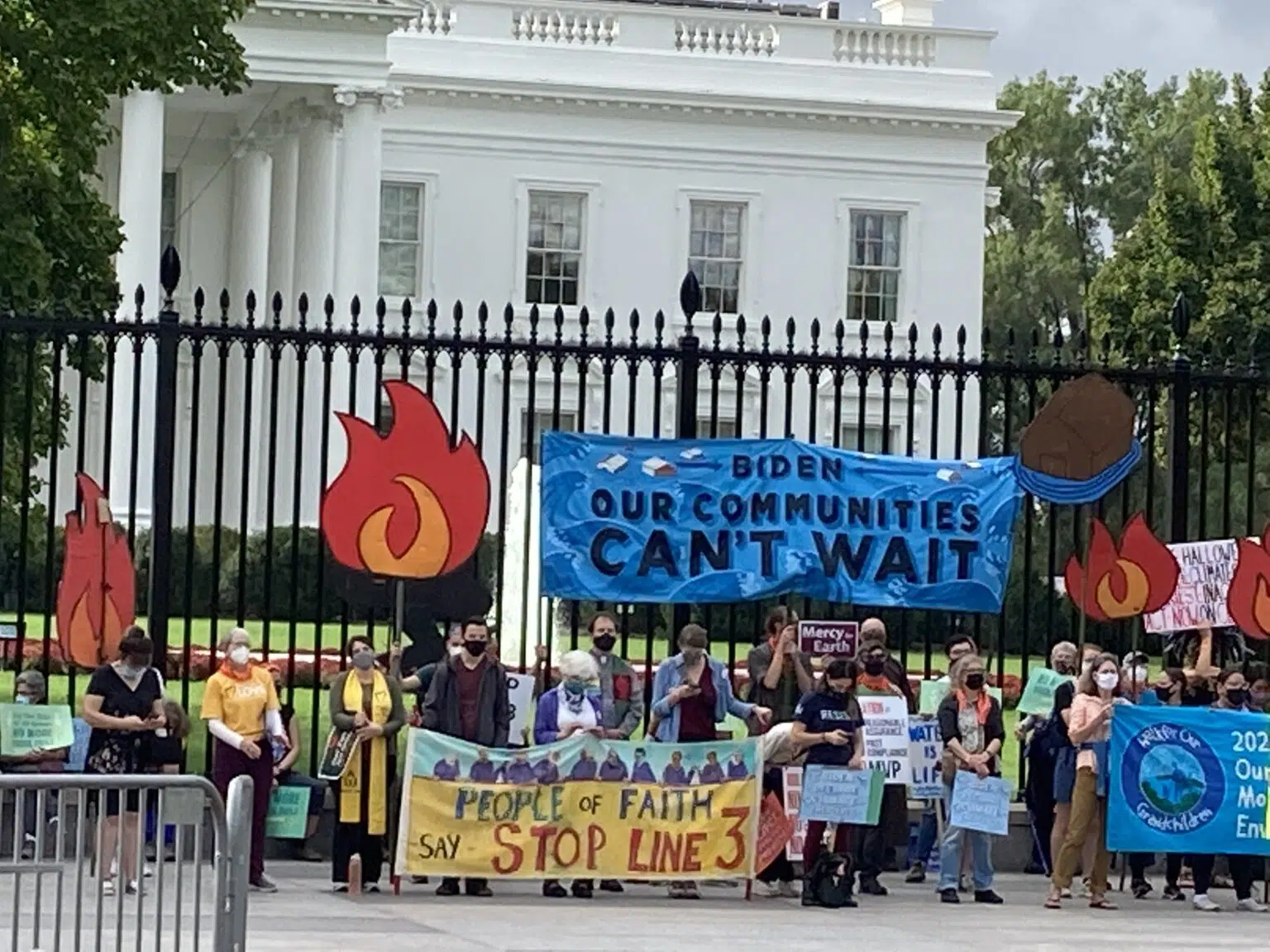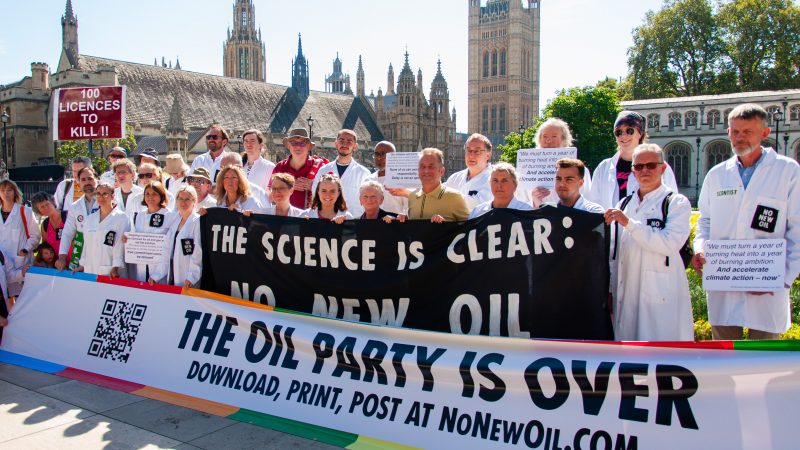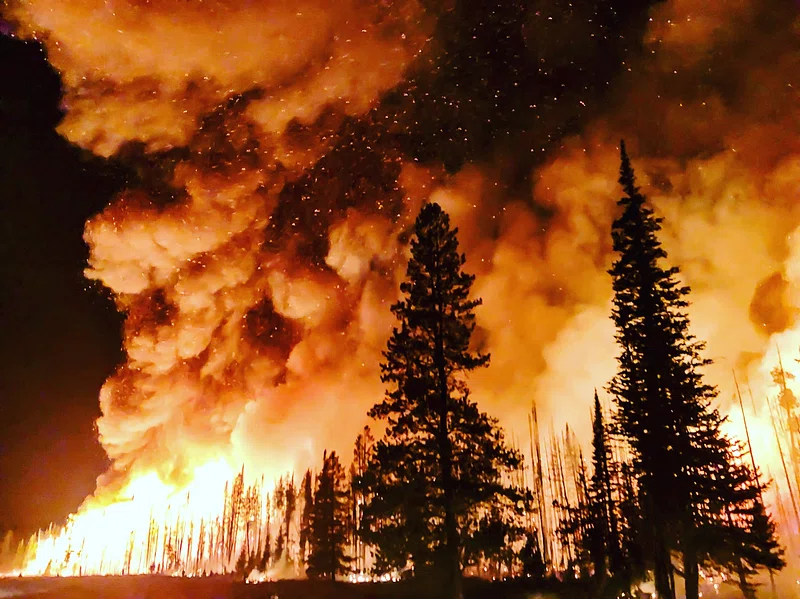The United States and Canada Are Among the World’s Top 5 ‘Planet Wreckers,’ New Fossil Fuel Report Contends
Original article by Dana Drugmand republished from DeSmog.
Just ahead of U.N. climate summit in New York City, analysis calls on governments to halt planned gas and oil projects

United Nations chief António Guterres has called on nations to arrive at September 20’s high-level climate summit in New York City with firm commitments for ending fossil fuel production.
So far, however, the world’s top 20 oil and gas extractors have enough production planned to generate 173 billion tons of carbon pollution by 2050 — more than enough to blow past their Paris Agreement commitments and heat the world well beyond 1.5 degrees Celsius above historical temperatures. The greatest polluter among them will be the United States.
Those are some of the findings in a new report from the group Oil Change International, which has found that these 20 countries — dubbed the “planet wreckers” — are going to be responsible for almost 90 percent of the expected carbon emissions from planned oil and gas projects between 2023 and 2050.
“A handful of the world’s richest nations are gambling our global future by failing to act and ignoring the scientific calls and evidence that we need to rapidly phase out fossil fuels,” said Kelly Trout, co-director of research at Oil Change International, who co-authored the report with colleague Romain Ioualalen.
“Most countries are unfortunately still moving in the wrong direction,” she said.
Oil and gas projects already planned by these nations will generate climate-heating CO2 emissions equivalent to 1,082 new coal plants, according to the report.
Based on their current plans, just five countries — the U.S. Canada, Norway, Australia, and the UK — will account for 51 percent of all new oil and gas projects through 2050, Trout found in her research.
“Among all of the countries that we call out in the report, these are the five that have the greatest economic means and capacity to actually be phasing out their oil and gas production the fastest,” Trout said.
The U.S. is both the largest historical carbon emitter and the world’s top oil and gas producer. Dubbed “planet wrecker in chief” in the report, it is on course to drive the most carbon pollution from planned oil and gas expansion by far. New oil and gas extraction in the U.S. will account for more than one-third of all planned projects over the next 25 years, creating 72.5 billion tons of CO2 emissions through 2050.
Canada, which is on track for 18.6 billion tons of cumulative carbon pollution through 2050, came in second.
Russia, the world’s second largest gas extractor and third largest oil producer, ranked third with 17.3 billion tons of CO2 expected from new production through 2050. Iran ranked fourth with 9.7 billion tons, and China rounded out the top five at 8.9 billion tons of expected carbon pollution.
Trout was not surprised by the outsized role of the U.S. “It’s a reflection of the reality that the oil and gas industry’s expansion has been unchecked for many years now in the United States,” she said. “President Biden has put very few limits on the oil and gas industry, and has even enabled the sort of expansion that we’re warning about in this report.”
Since the beginning of 2023, the Biden administration has approved construction of multiple liquid natural gas export facilities.
Among the moves that have further outraged environmentalists, in March, the administration approved the Willow Project, a major ConocoPhilips oil drilling venture in the National Petroleum Reserve-Alaska, a federal wilderness on Alaska’s North Shore. Estimates put up to 600 million barrels of oil in the area where the project will be located.
Just two weeks later, at the end of March, the Department of Interior held a large oil and gas lease sale in the Gulf of Mexico, leasing 313 tracts across 1.6 million acres.
In June, as part of the debt ceiling deal negotiated between congressional Republicans and the White House, federal agencies fast-tracked Mountain Valley Pipeline, which will carry fracked gas about 300 miles from northwestern West Virginia to southern Virginia.
President Biden has also resisted calls from climate advocates to formally declare a climate emergency, even as the annual number of billion-dollar climate disasters continues to mount. Among them: Phoenix, Arizona set a new record for enduring 31 consecutive days over 110 degrees Fahrenheit, Vermont suffered its worst flooding in nearly a century, and the Hawaiian city of Lahaina was destroyed by one of the deadliest wildfires in U.S. history.
In an August interview on the Weather Channel, Biden said he had “practically” declared a climate emergency, a statement that angered climate activists seeking more concrete action.
Against this backdrop, tens of thousands are expected to take to the streets of New York on September 17 for a “March to End Fossil Fuels,” some with the explicit demand that President Biden stop U.S. expansion of oil and gas development. Mid-September actions and protests are also being planned in cities and towns worldwide.
“Thousands of folks will be marching, not just in New York City but across the world to just say our future is on the line,” Trout said, “and a livable future for us all is completely incompatible with the expansion and continuation of the fossil fuel industry.”
Original article by Dana Drugmand republished from DeSmog.



